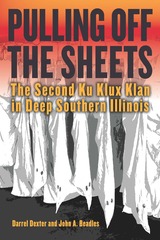
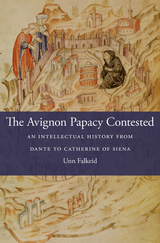
The Avignon papacy (1309–1377) represented the zenith of papal power in Europe. The Roman curia’s move to southern France enlarged its bureaucracy, centralized its authority, and initiated closer contact with secular institutions. The pope’s presence also attracted leading minds to Avignon, transforming a modest city into a cosmopolitan center of learning. But a crisis of legitimacy was brewing among leading thinkers of the day. The Avignon Papacy Contested considers the work of six fourteenth-century writers who waged literary war against the Catholic Church’s increasing claims of supremacy over secular rulers—a conflict that engaged contemporary critics from every corner of Europe.
Unn Falkeid uncovers the dispute’s origins in Dante’s Paradiso and Monarchia, where she identifies a sophisticated argument for the separation of church and state. In Petrarch’s writings she traces growing concern about papal authority, precipitated by the curia’s exile from Rome. Marsilius of Padua’s theory of citizen agency indicates a resistance to the pope’s encroaching power, which finds richer expression in William of Ockham’s philosophy of individual liberty. Both men were branded as heretics. The mystical writings of Birgitta of Sweden and Catherine of Siena, in Falkeid’s reading, contain cloaked confrontations over papal ethics and church governance even though these women were later canonized.
While each of the six writers responded creatively to the implications of the Avignon papacy, they shared a concern for the breakdown of secular order implied by the expansion of papal power and a willingness to speak their minds.
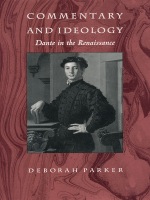
Parker begins by tracing the criticism of Dante commentaries from the nineteenth century to the present and then examines the tradition of commentary from the Middle Ages to the Renaissance. She shows how the civic, institutional, and social commitments of commentators shaped their response to the Comedy, and how commentators tried to use the poem as an authoritative source for various kinds of social legitimation. Parker discusses how different commentators dealt with a deeply political section of the poem: the damnation of Brutus and Cassius.
The scope and importance of Commentary and Ideology will command the attention of a broad group of scholars, including Italian specialists on Dante, late medievalists, students and professionals in early modern European literature, bibliographers, critical theorists, historians of literary criticism and theory, and cultural and intellectual historians.

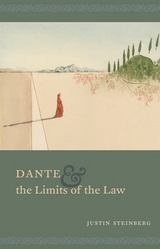
Examining how Dante probes the limits of the law in this juridical otherworld, Steinberg argues that exceptions were vital to the medieval legal order and that Dante’s otherworld represents an ideal “system of exception.” In the real world, Dante saw this system as increasingly threatened by the dual crises of church and empire: the abuses and overreaching of the popes and the absence of an effective Holy Roman Emperor. Steinberg shows that Dante’s imagination of the afterlife seeks to address this gap between the universal validity of Roman law and the lack of a sovereign power to enforce it. Exploring the institutional role of disgrace, the entwined phenomena of judicial discretion and artistic freedom, medieval ideas about privilege and immunity, and the place of judgment in the poem, this cogently argued book brings to life Dante’s sense of justice.
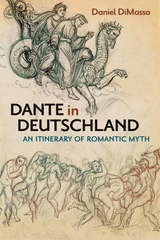
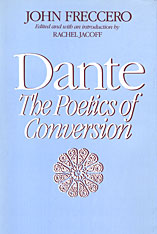
John Freccero enables us to see the Divine Comedy for the bold, poetic experiment that it is. Too many critics have domesticated Dante by separating his theology from his poetics. Freccero argues that to fail to see the convergence of the letter and the spirit, the pilgrim and the poet, is to fail to understand Dante’s poetics of conversion. For Dante, body and soul go together and there is no salvation that’s purely intellectual, no poetry that is simply literary.
The essays that form this book were originally published between 1959 and 1984. They are arranged to follow the order of the Comedy, and they form the perfect companion for a reader of the poem. With these essays assembled for the first time, we can now see Freccero’s stature: he is the best contemporary critic of Dante. Freccero is that rare article, a critic of eclectic and not dogmatic persuasion. Throughout Freccero operates on the fundamental premise that there is always an intricate and crucial dialectic at work between Dante the poet and Dante the pilgrim, and that it is this dialectic that makes the work so profoundly dramatic, one of the great novels of the self.
Thanks to Freccero we readers have the Comedy whole again. Freccero calls upon medieval philosophy, cosmology, science, theology, and poetics to enable us to traverse Dante’s moral landscape without losing our way in the confusions of minute exegeses. In a secular age Freccero enables us to see this poem as what it is, something wholly other than what we might believe or write. In doing so he shows us the most that language can achieve in any age, secular or not.
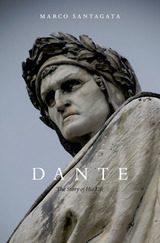
A Times Literary Supplement Book of the Year
A Marginal Revolution Best Non-Fiction Book of the Year
A Seminary Co-op Notable Book of the Year
A Times Higher Education Book of the Week
A Choice Outstanding Academic Title of the Year
Marco Santagata’s Dante: The Story of His Life illuminates one of the world’s supreme poets from many angles—writer, philosopher, father, courtier, political partisan. Santagata brings together a vast body of Italian scholarship on Dante’s medieval world, untangles a complex web of family and political relationships for English readers, and shows how the composition of the Commedia was influenced by local and regional politics.
“Reading Marco Santagata’s fascinating new biography, the reader is soon forced to acknowledge that one of the cornerstones of Western literature [The Divine Comedy], a poem considered sublime and universal, is the product of vicious factionalism and packed with local scandal.”
—Tim Parks, London Review of Books
“This is a wonderful book. Even if you have not read Dante you will be gripped by its account of one of the most extraordinary figures in the history of literature, and one of the most dramatic periods of European history. If you are a Dantean, it will be your invaluable companion forever.”
—A. N. Wilson, The Spectator
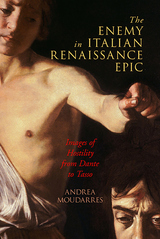
Published by University of Delaware Press. Distributed worldwide by Rutgers University Press.
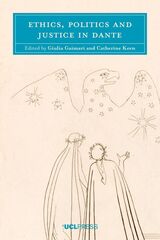
Bringing together an international and interdisciplinary group of contributors, ranging across history, philology, classical studies, philosophy, and theology, Ethics, Politics and Justice in Dante presents new research on ethics, politics, and justice in the works of Dante Alighieri, including chapters on Dante’s conception of the afterlife. Contributors scrutinize the Divine Comedy and Dante’s other works in Italian and Latin, showing the evolution of his thought throughout his writing career, with chapters focusing especially on his early philosophical Convivio and on the two “Eclogues” of his final years. Other chapters tackle themes relating to judgment, justice, rhetoric, and literary ethics in the Divine Comedy, as well as the differing public reception and use of Dante’s work in Italy and Britain.
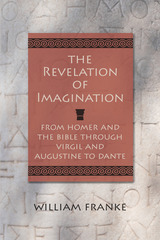
In The Revelation of Imagination, William Franke attempts to focus on what is enduring and perennial rather than on what is accommodated to the agenda of the moment. Franke’s book offers re-actualized readings of representative texts from the Bible, Homer, and Virgil to Augustine and Dante. The selections are linked together in such a way as to propose a general interpretation of knowledge. They emphasize, moreover, a way of articulating the connection of humanities knowledge with what may, in various senses, be called divine revelation. This includes the sort of inspiration to which poets since Homer have typically laid claim, as well as that proper to the biblical tradition of revealed religion. The Revelation of Imagination invigorates the ongoing discussion about the value of humanities as a source of enduring knowledge.
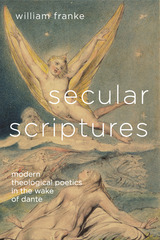
Secular Scriptures examines, through its own original speculative outlook, some of the most compelling exemplars of religious-poetic revelation in modern Western literature. The essays taken as an ensemble revolve around and are bookended by Dante, but they also explore the work of Chaucer, Shakespeare, Milton, Blake, Leopardi, Baudelaire, Dickinson, and Yeats. Looking both backward and forward from the vantage of Dante, Franke explores the roots of secularized religious vision in antiquity and the Middle Ages, even as he also looks forward toward its fruits in modern poetry and poetics. Ultimately, Franke’s analyses demonstrate the possibilities opened by understanding literature as secularized religious revelation.
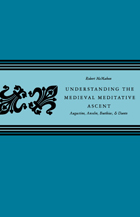

Peter Dronke illuminates a unique literary tradition: the narrative that mixes prose with verse. Highlighting a wide range of texts, he defines and explores the creative ways in which mixed forms were used in Europe from antiquity through the thirteenth century. Verse with Prose from Petronius to Dante distinguishes for the first time some of the most significant uses of mixed forms.
Dronke looks at the way prose and verse elements function in satirical works, beginning in the third century B.C. with Menippus. He examines allegorical techniques in the mixed form, giving especially rewarding attention to Boethius' Consolation of Philosophy. His lucid analysis encompasses a feast of medieval sagas and romances—ranging from Iceland to Italy—including vernacular works by Marguerite Porete in France and Mechthild in Germany. A number of the medieval Latin texts presented have remained virtually unknown, but emerge here as narratives with unusual and at times brilliant literary qualities. To enable not only specialists but all who love literature to respond to the works discussed, they are quoted in fresh translations, as well as in the originals.
READERS
Browse our collection.
PUBLISHERS
See BiblioVault's publisher services.
STUDENT SERVICES
Files for college accessibility offices.
UChicago Accessibility Resources
home | accessibility | search | about | contact us
BiblioVault ® 2001 - 2024
The University of Chicago Press



